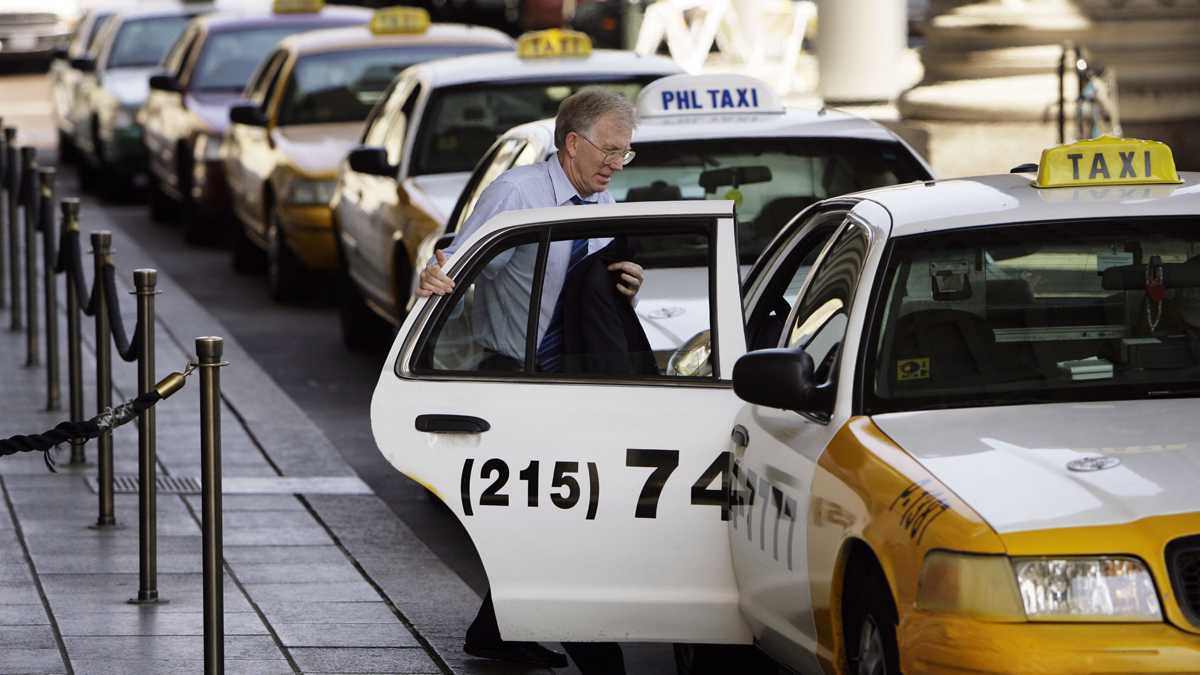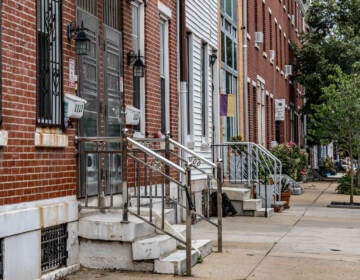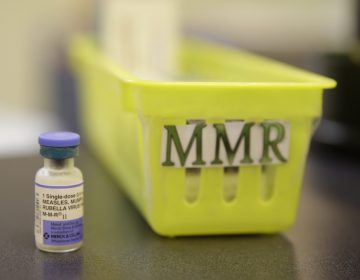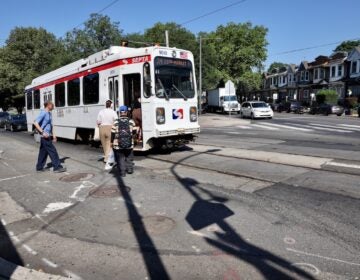Uber, Lyft leaving many Philly cabbies in the dust
Listen
A man climbs into a cab at the 30th Street Station in Philadelphia. (Matt Rourke/AP Photo
Next month will mark two years since UberX launched in Philadelphia, and new data reveals the ride-hailing company’s impact on the city’s taxi drivers has been nothing short of catastrophic.
In the fall of 2014, in the month just before UberX rolled into town, city taxi drivers completed about 1,000,000 rides.
Compare that to this July. With cabbies facing competition from Uber and Lyft, they completed just 600,000 trips, or 40 percent fewer.

“So a lot of full-time jobs in the taxi industry [are] collapsing, and it is becoming part-time work,” said Ronald Blount, president of the Taxi Workers Alliance of Pennsylvania.
While 6,000 people used to make their living driving cabs in the region, he said, that’s now down to about 3,500.
“We just think for the overall good of the city, I think taxi drivers have to be a part of the transportation economy,” he said. “I’m not saying we have to be the total part, we have to be some of it.”
Exactly how to handle that balance of old and new transportation has vexed officials from the start. When they launched, UberX and Lyft were technically illegal, repeatedly called “hack” taxis by the Philadelphia Parking Authority, and subject to horse-assisted stings.
Uber continued to rack up huge fines and lawsuits, even as the public was clamoring for their services.
That changed this summer, when the Silicon Valley company was given a temporary green light by Harrisburg, in part to assist SEPTA passengers caught in terminally long commutes, and so UberX could service the Democratic National Convention.
That green light turns red again Sept. 30, though, something that has lawmakers scrambling to find a solution.
Pennsylvania Sen. Camera Bartolotta, R-Beaver, who sponsored a bill that cleared the Senate but failed to gain support in the House, said leadership on both sides of the aisle will make a permanent ride-hailing legalization measure a priority when they return from recess on Sept. 26.
The final bill needs to balance to desires of customers, she said, as well as creating a level-playing field so cabbies can compete.
“This is something that we’ve got to get done, it’s got to move,” she said.
WHYY is your source for fact-based, in-depth journalism and information. As a nonprofit organization, we rely on financial support from readers like you. Please give today.




